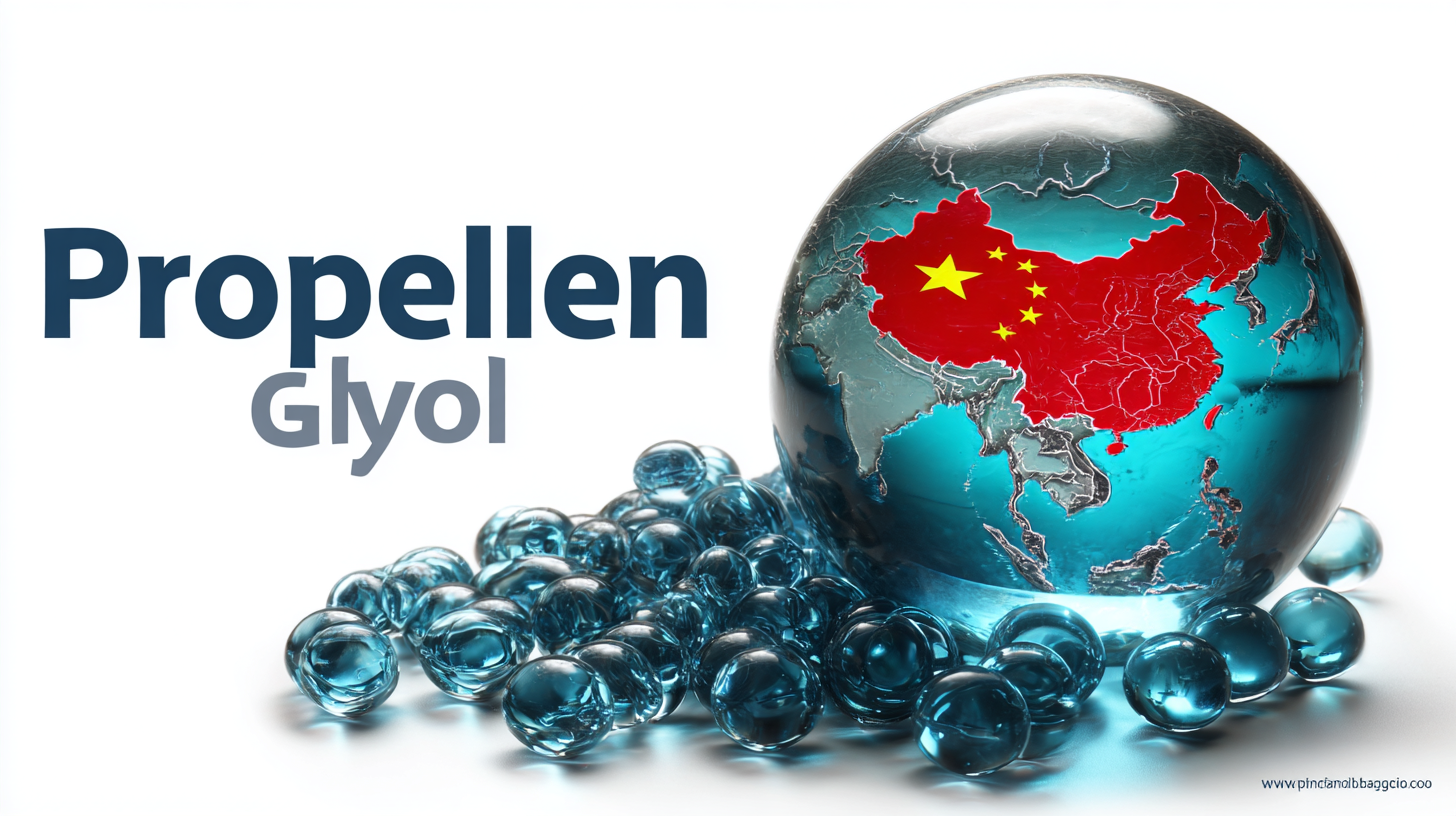Global Trust in Chinese Manufacturing Consistent Quality in Best Propylene Glycol
The global trust in Chinese manufacturing has been steadily gaining momentum, particularly in the production of high-quality Propylene Glycol, a vital ingredient in various industries including pharmaceuticals, food processing, and personal care. According to a recent market analysis by Grand View Research, the global Propylene Glycol market size was valued at approximately $4.02 billion in 2022 and is projected to expand at a compound annual growth rate (CAGR) of 4.4% from 2023 to 2030. This growth is driven by the rising demand for biodegradable solvents and the increasing applications of Propylene Glycol in cosmetics and food production. China's commitment to maintaining consistent quality in its manufacturing processes has further bolstered its reputation, with advanced technologies and stringent quality controls enhancing product reliability. As industries increasingly seek dependable sources of Propylene Glycol, China's manufacturing prowess continues to play a pivotal role in meeting global needs while ensuring safety and efficacy.

The Rise of Chinese Manufacturing: A Trustworthy Partner in Propylene Glycol
In recent years, Chinese manufacturing has emerged as a trustworthy partner in the production of propylene glycol, a vital ingredient in various industries, including food, pharmaceuticals, and cosmetics. This rise can be attributed to significant advancements in technology and quality control processes that have positioned Chinese manufacturers as leaders in the market. By investing heavily in research and development, they are now capable of producing high-quality, consistent products that meet international standards, fostering global trust.
Moreover, the commitment to sustainability and eco-friendly practices has further strengthened China's reputation as a reliable partner. Many manufacturers have integrated green technologies into their production processes, ensuring that their propylene glycol is not only effective but also environmentally friendly. This pivot towards sustainable practices resonates well with global consumers who increasingly prioritize environmentally responsible sourcing. As a result, businesses seeking high-quality propylene glycol can confidently turn to Chinese manufacturers, knowing that they are partnering with a sector that values both quality and sustainability.
Quality Assurance Practices in Chinese Manufacturing: A Case Study
In the rapidly evolving landscape of global manufacturing, Chinese companies have distinguished themselves through their commitment to quality assurance practices, especially in the production of propylene glycol. This case study showcases how leading manufacturers rigorously adhere to international standards, employing stringent quality control mechanisms at every stage of production. From raw material sourcing to final product testing, these practices ensure that the propylene glycol produced meets the varied expectations of global markets.
**Tip 1:** When evaluating Chinese manufacturers, consider those who are ISO certified. This certification indicates a commitment to consistent quality and operational excellence, which can give you peace of mind about the manufacturing process.
Additionally, manufacturers are increasingly leveraging advanced technologies such as automation and real-time monitoring to enhance their quality assurance protocols. By integrating smart machinery and data analytics, they can detect anomalies early and minimize waste, leading to both cost savings and superior product quality.
**Tip 2:** Always request detailed reports on quality assurance practices from potential suppliers. This transparency can help you gauge their dedication to maintaining high standards and can inform your decision-making process.
Navigating the Global Market: Strategies for Sourcing Propylene Glycol
In today’s global market, sourcing propylene glycol efficiently requires a strategic approach, particularly as demand continues to grow across various industries. According to a report by Grand View Research, the global propylene glycol market size was valued at over $3.3 billion in 2021 and is expected to expand at a compound annual growth rate (CAGR) of 5.4% from 2022 to 2030. Given this upward trend, companies must adopt meticulous sourcing strategies to ensure consistency and quality.
One effective strategy involves building long-term relationships with reliable suppliers, particularly in regions known for high-quality manufacturing, such as China. The International Trade Administration highlights that China's propylene glycol production capacity accounts for approximately 40% of the global market, making it a vital player. By leveraging China's advanced manufacturing capabilities and stringent quality control measures, companies can mitigate risks and secure top-quality propylene glycol. Additionally, incorporating robust logistics management and embracing technology in supply chain operations will further enhance sourcing efficiency and product integrity in this competitive landscape.
Global Trust in Chinese Manufacturing: Propylene Glycol Sourcing Strategies
This chart illustrates the performance metrics of Chinese manufacturing related to propylene glycol. The quality rating is high, indicating consistent quality in production, while the manufacturing cost and delivery time are moderately rated. Sustainability efforts still need improvement as indicated by the lower score.
Consumer Confidence: The Impact of Consistent Quality on Brand Loyalty
In today's competitive market, consistent quality is the bedrock of consumer confidence and brand loyalty. As consumers are faced with an abundance of choices, brands that deliver reliability foster a deeper emotional connection with their customers. This is particularly evident in the realm of manufacturing, where brands that prioritize quality, such as those producing propylene glycol, can build enduring loyalty. Customer experience plays a pivotal role, and understanding how to meet consumer expectations consistently can transform a fleeting purchase into lifelong brand allegiance.

Recent studies highlight that consumers are increasingly discerning, placing greater trust in brands that demonstrate integrity and prioritize their needs. Companies that focus on delivering exceptional customer experiences and maintaining relevance amidst shifting consumer behaviors stand out as trusted choices. In this context, Chinese manufacturing is carving a niche for itself by offering high-quality products that resonate with consumers' desires for reliability and excellence. As brands strive to navigate the complexities of consumer loyalty, the impact of consistent quality cannot be overstated; it is a vital ingredient for long-term success in an era marked by choice and constant change.
Future Trends in Propylene Glycol Production: Sustainability and Innovation
The future of propylene glycol production is poised for significant transformation, driven by sustainability and innovation. As environmental awareness continues to rise, manufacturers are increasingly prioritizing eco-friendly practices. This shift is reflected in the push for bio-based propylene glycol sourced from renewable resources, which not only reduces the carbon footprint but also meets consumer demand for greener products. By investing in advanced technologies and sustainable raw materials, companies can maintain competitive advantage while aligning with global environmental goals.

In addition to sustainability, innovation plays a crucial role in the evolution of propylene glycol production. Cutting-edge techniques, such as enzymatic processes and advanced filtration, have the potential to enhance efficiency and product quality. These innovations not only streamline production methods but also open avenues for creating high-purity products that meet the stringent needs of various industries, from food to pharmaceuticals. Emphasizing both sustainability and technological advancement, the propylene glycol market is set to evolve, catering to both ecological demands and consumer expectations.





